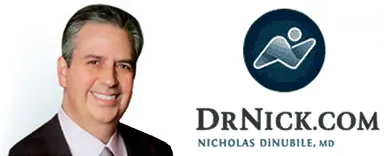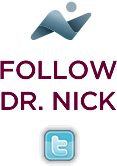“It’s not the conditions, it’s the decisions.”
Mountain-climber / expedition saying
Why do we do the things we do? What drives our behavior? Is it our circumstances and situations or is there an internal compass at play? Usually it’s a bit of both. When things get too busy at work or home, often your workouts suffer. Higher stress, comfort food and overeating can set in. Clearly our environment has an influence, but usually our rational thought processes drive things. Or do they? Interestingly, our decision making process isn’t as simple and straight forward as you might think. So much happens beneath our own radar when choices, conscious or subconscious, are made.
In his fascinating book Blink, Malcolm Gladwell (author of best-seller The Tipping Point) dissects the mechanism by which we make every day decisions in “the blink of an eye”, something that is constantly at work in daily life. He explores the process of “rapid cognition” and how the “adaptive unconscious” plays in. Parts of your brain start thinking, analyzing and making decisions before you do- and way before you are even aware of it. He applies the “blink” concept to relationships and marital success, ER physicians’ accuracy in making a heart attack diagnosis, unbelievable behavioral similarities between stock traders and army field generals and so much more. You come to realize that rapid decisions with little information can often be better than ones following a long period of information gathering and rational thought- and that the “blink” rapid stuff drives a good bit of our behavior. Which brings me back to health.
Life is full of choices and many of these daily choices determine the level of health you enjoy, both present and future. Activity levels, food, snack, and beverage choices, getting regular checkups and timely medical care when needed, all add up. Making good quality everyday choices is what often makes the difference between health and disease, feeling good or feeling bad and ultimately whether you enjoy a long active productive life or not.
I believe that many of the subconscious, “blink of an eye” processes are in play here and the more you learn about them the better you will be at making them work for you, not against you, in all aspects of life. Malcolm Gladwell says, “I think its time we paid more attention to those fleeting moments. I think that if we did, it would change the way wars are fought, the kind of products we see on the shelves, the kinds of movies that get made, the way police officers are trained, the way couples are counseled, the way job interviews are conducted and on and on–and if you combine all those little changes together you end up with a different and happier world”.
FitTip
Forget the conditions, and learn more about your decisions. Check out Blink.
Follow Dr. Nick!
